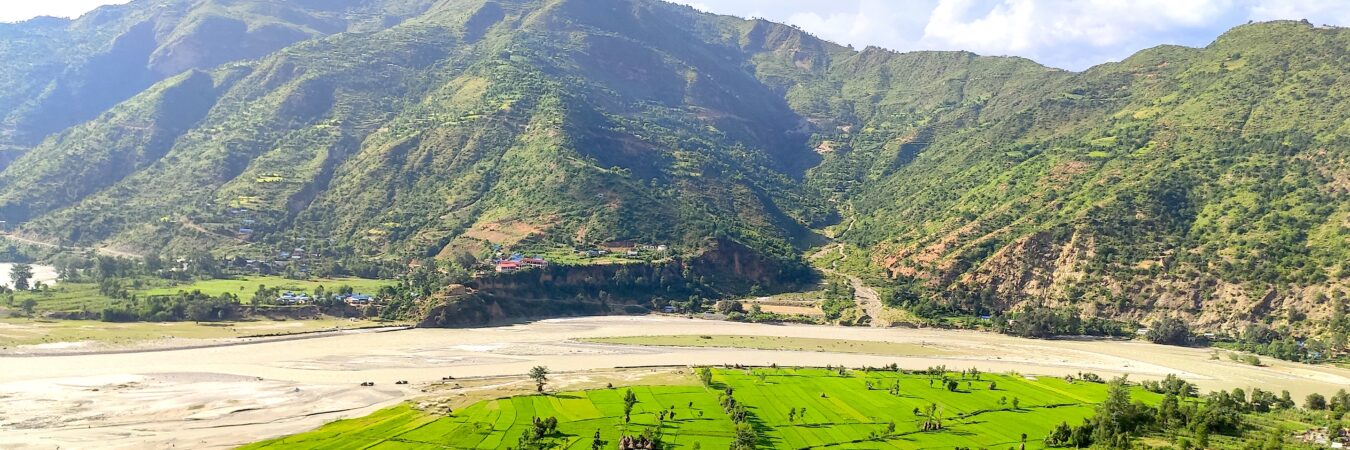
News
Hands-on training on GIS and GPS mapping
ANSAB organized five days “Hands-on training on GIS and GPS Mapping” at Charikot, Dolakha from August 30 to September 03, 2014. The main objective of the training was to capacitate and enhance the knowledge of the forest technicians and the stakeholders on Geographic Information System for the proper…
Gap analysis workshop
ANSAB organized two days district level “Gap Analysis Workshop” on the basis of FSC standards for sustainable forest management certification for incorporating them into the management plan and Constitution of the community forest user groups (CFUGs) on August 26-27, 2014. The main objective of the workshop was to…
National sharing workshop on “Forest carbon stock assessment for REDD+ in the Chitwan Annapurna Landscape”
ANSAB organized a national sharing workshop on “Forest carbon stock assessment for REDD+ in the Chitwan Annapurna Landscape” on July 25, 2014. The main objective of the workshop was to share and get feedback on findings of the forest carbon stock assessment; geospatial analysis; and assessing land use…
One Health Asia Programme (OHAP) – Fighting zoonoses in Afghanistan, Bangladesh and Nepal
The threat of zoonoses, which are naturally transmitted between vertebrate animals and humans, is particularly serious in the least developed countries, where people often cohabitate with their animals and do not have access to information or equitable resources for combating health concerns. In Nepal there are reported case…
Exchange of experience and knowledge between Myanmar and Nepal forest and farm producer organizations around market based approaches in enterprise development
Asia Network for Sustainable Agriculture and Bioresources (ANSAB) conducted a visit of Forest and Farm Facility (FFF) – Myanmar team from June 9 to June 16, 2014. The purpose of the exchange visit between FFF partners in Nepal and Myanmar was to support FFF program move forward with…
Mid term evaluation workshop for Forest Certification for Ecosystem Services (ForCES)
ANSAB organized a “Stakeholder Workshop on Mid Term Review (MTR) of Forest Certification for Ecosystem Services (ForCES)” on June 7, 2014 to improve project implementation and performance during its second half based on a review of progress and achievements. Altogether there were 30 representatives from the partner organizations,…
National workshop on ecosystem-based commercial agriculture (ECA) in Nepal
Kathmandu, Nepal, May 9, 2011 – Policy-makers, researchers, entrepreneurs and representatives of development agencies working in Nepal met in Kathmandu for a National Workshop on Ecosystem Based Commercial Agriculture (ECA) in Nepal. The event included i) sharing of the concept of ECA system and practical experience, and ii)…
ANSAB delivers course to the Masters students of Future Generations Graduate School, USA
ANSAB provided theoretical and practical courses on community forestry and sustainable forest management in Nepal to the Masters level students of Future Generations Graduate School. The Masters level students focusing on Community-based learning were in Nepal residential last month. During their stay in Nepal, in the overall guidance…
FSC IGI public consultation in Nepal
In order to support Forest Stewardship Council (FSC) in developing International Generic Indicators (IGIs), ANSAB organized two meetings of IGI working group on February 18 and March 3, 2014 and a two-day national workshop on March 21-22, 2014 in Kathmandu during the public consultation period. FSC Secretariat has…
Economic growth and employment generation potential of forest-based industries in Nepal
A recent study has shown that the forest-based industries have very high potential for economic growth and employment generation in Nepal. A national level study – Private Sector Involvement and Investment in Nepal’s Forestry: Status, Prospects and Ways Forward – conducted by ANSAB and its consortium partners Relief…
Ecosystem-based commercial agriculture: Towards transforming conventional agriculture and forestry into climate smart, attractive and socially prestigious business in Nepal
Nepal has a comparative advantage in developing sustainable agriculture; and the existence of some good practices that are scattered across the nation can be an asset to this direction. But efforts are still lacking to consolidate these good practices into a viable system of value chain. There is…
World Bank selects ANSAB as the regional intermediary for the FCPF capacity-building programs in Asia and the Pacific
ANSAB has been selected as the regional intermediary organization by the World Bank for the FCPF (Forest Carbon Partnership Facility) capacity building programs for the fiscal year 2014-15 in Asia and the Pacific region. FCPF mentioned the criteria for the organizations with a high level of regional credibility;…
